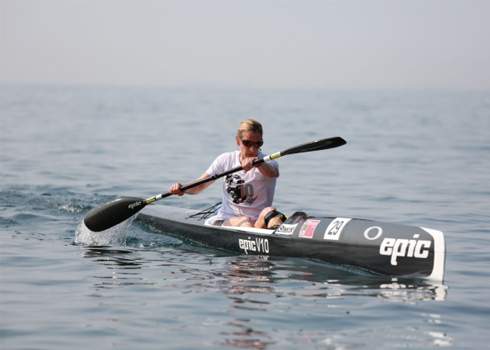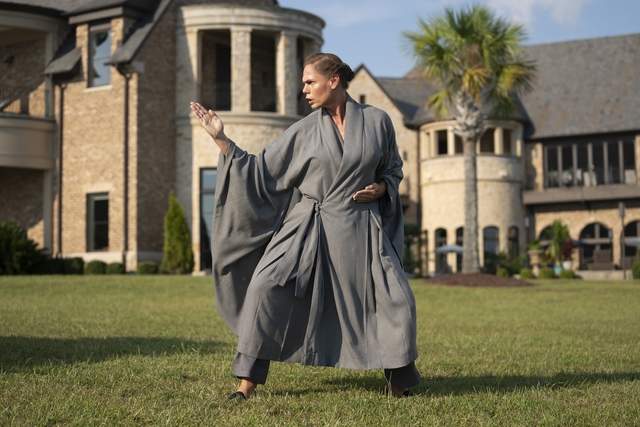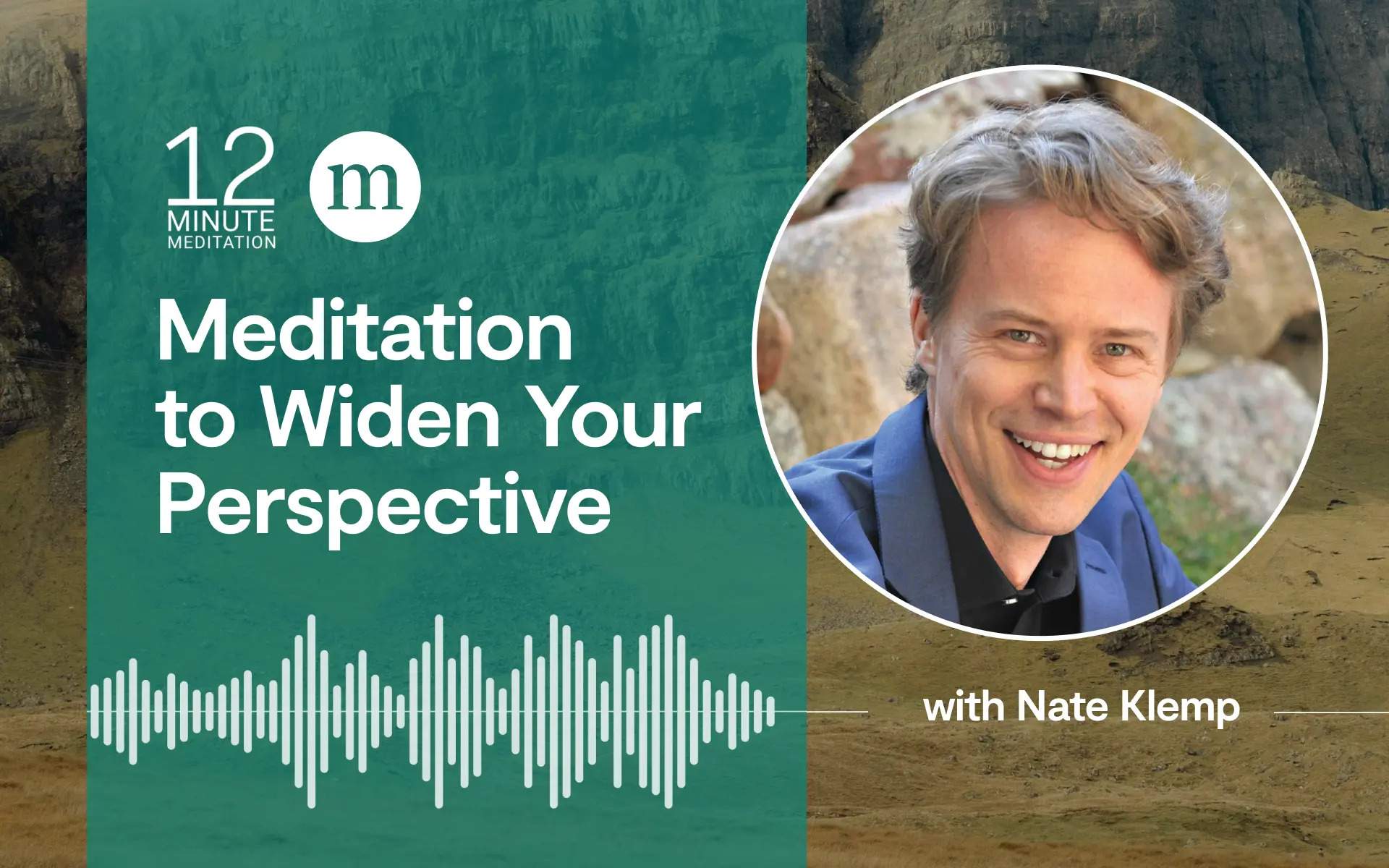By Lara Wozniak
For years, my colleagues at magazines I’ve worked for have clearly questioned my sanity. Why would I choose to climb into a sea kayak, as narrow as my hips, and race it in the open ocean, down waves stacked taller than me for ten or more miles? Ironically, the answer is: add a touch of danger to preserve my sanity.
The key to any high-risk sport is focus: Whether it’s surf ski paddling, which is what I race, or rock climbing, surfing or solo sailing, staying in the moment is essential.
No matter what is happening in my family, social or work life, when I get out on the water I can do only one thing: think about what I’m doing. If my mind wanders, I’m no longer sitting on top of my surf ski, I’m swimming. That’s an amusing thing to watch and even do: every once in a while, even the most experienced paddlers, will fall in—usually this is when they are sitting in calm water without a ripple, when there’s no reason to think they might flip. Then, suddenly, plop! The paddler is in the water, having lost concentration for a moment. Do that when the air is crisp and the wind is blowing a chill, and you’ll learn your lesson fast.
Lara Wozniak co-organizes the Dragon Run, a 24-kilometer surfski and outrigger race in Hong Kong.
Fall in on a massive wave, when there are sets following and sharks below, and then try to climb back into a boat that rolls easily, and you’ll vow to never lose focus again.
But you do not need to put your life in danger to feel the same results. Just add an obstacle. This may be the key to increasing your enjoyment of sports, which is particularly useful if sticking to exercise is a challenge for you. For example, if you routinely run on a treadmill or cycle a stationary bike, switch to trail running or cycling. If you live in the city and there are no trails, add in steps (for running) and hills (for cycling). Once you have to ensure you don’t trip, or stand to pedal, your focus on what you’re doing increases, and your active meditation kicks in.
While in the gym, skip the machines and use kettlebells, dumbbells, a Swiss ball and a jump rope. Nearly every exercise that can be done on a machine has a free-weight counterpart that requires more balance, more control, more focus.
THE FUN FACTOR
Just make it fun. Twice a week my husband and I visit the gym together. The first thing we do is kneel on a Swiss ball and then we toss a medicine ball back and forth to one another. This takes core strength and balance, which we need to race. But more important, it’s simply a good laugh. We’re in our forties, starting our day by playing catch.
If you play basketball, tennis or racquetball, switch hands. Use your less dominant hand to dribble more, and for racket sports just give it a go for five minutes. You may be a complete wreck—but you’ll giggle and relax into the moment.
The trick is—you have to focus on the fun too. I have a series of mental games I play with myself when I paddle. Most mornings, I see a heron on a rock of a nearby island. I say good morning to her. I’ve decided it’s a her and it’s the same bird, and I laugh at the absurdity of that determination, which makes me enjoy the moment. Then I return to the effort of not swimming: I tell myself to sit up tall (like the heron), to float across the water (as the heron flies) and to hunt for waves (as she fishes).
There is a caveat to this story, though. Every time you up the ante—it gets easier. And so you have to keep mixing it up and
By Lara Wozniak
For years, my colleagues at magazines I’ve worked for have clearly questioned my sanity. Why would I choose to climb into a sea kayak, as narrow as my hips, and race it in the open ocean, down waves stacked taller than me for ten or more miles? Ironically, the answer is: to preserve my sanity.
The key to any high-risk sport is focus: Whether it’s surf ski paddling, which is what I race, or rock climbing, surfing or solo sailing, staying in the moment is essential.
No matter what is happening in my family, social or work life, when I get out on the water I can do only one thing: think about what I’m doing. If my mind wanders, I’m no longer sitting on top of my surf ski, I’m swimming. That’s an amusing thing to watch and even do: every once in a while, even the most experienced paddlers, will fall in—usually this is when they are sitting in calm water without a ripple, when there’s no reason to think they might flip. Then, suddenly, plop! The paddler is in the water, having lost concentration for a moment. Do that when the air is crisp and the wind is blowing a chill, and you’ll learn your lesson fast.
Lara Wozniak co-organizes the Dragon Run, a 24-kilometer surfski and outrigger race in Hong Kong.
Fall in on a massive wave, when there are sets following and sharks below, and then try to climb back into a boat that rolls easily, and you’ll vow to never lose focus again.
But you do not need to put your life in danger to feel the same results. Just add an obstacle. This may be the key to increasing your enjoyment of sports, which is particularly useful if sticking to exercise is a challenge for you. For example, if you routinely run on a treadmill or cycle a stationary bike, switch to trail running or cycling. If you live in the city and there are no trails, add in steps (for running) and hills (for cycling). Once you have to ensure you don’t trip, or stand to pedal, your focus on what you’re doing increases, and your active meditation kicks in.
While in the gym, skip the machines and use kettlebells, dumbbells, a Swiss ball and a jump rope. Nearly every exercise that can be done on a machine has a free-weight counterpart that requires more balance, more control, more focus.
THE FUN FACTOR
Just make it fun. Twice a week my husband and I visit the gym together. The first thing we do is kneel on a Swiss ball and then we toss a medicine ball back and forth to one another. This takes core strength and balance, which we need to race. But more important, it’s simply a good laugh. We’re in our forties, starting our day by playing catch.
If you play basketball, tennis or racquetball, switch hands. Use your less dominant hand to dribble more, and for racket sports just give it a go for five minutes. You may be a complete wreck—but you’ll giggle and relax into the moment.
The trick is—you have to focus on the fun too. I have a series of mental games I play with myself when I paddle. Most mornings, I see a heron on a rock of a nearby island. I say good morning to her. I’ve decided it’s a her and it’s the same bird, and I laugh at the absurdity of that determination, which makes me enjoy the moment. Then I return to the effort of not swimming: I tell myself to sit up tall (like the heron), to float across the water (as the heron flies) and to hunt for waves (as she fishes).
There is a caveat to this story, though. Every time you up the ante—it gets easier. And so you have to keep mixing it up and add a touch of danger to challenge yourself. And that too, takes focus.
Lara Wozniak is a freelance writer based in Hong Kong. She formerly edited FinanceAsia and the Far Eastern Economic Review. She is the co-organiser of the Dragon Run, a 24-kilometer surfski and outrigger race in Hong Kong.
to challenge yourself. And that too, takes focus.
Lara Wozniak is a freelance writer based in Hong Kong. She formerly edited FinanceAsia and the Far Eastern Economic Review. She is the co-organiser of the Dragon Run, a 24-kilometer surfski and outrigger race in Hong Kong.








